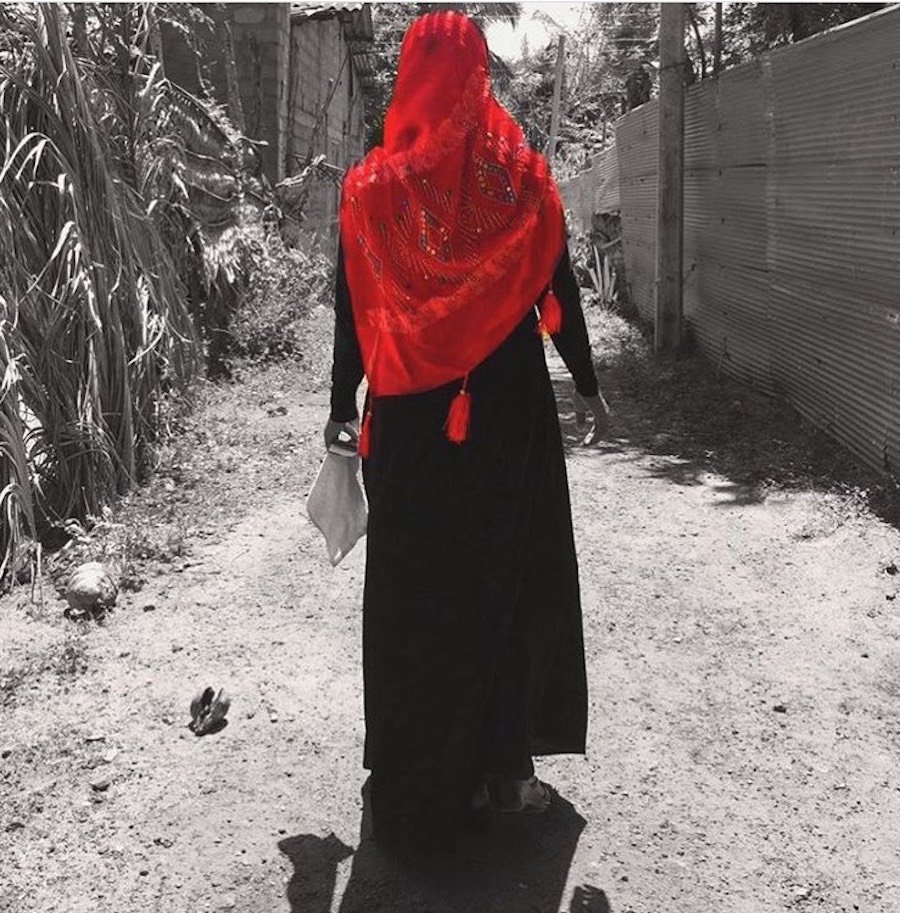Muslim Female LG Candidates Face Brunt Of Communal Clerical Misogyny

 By Ruwan Laknath Jayakody –February 6, 2018
By Ruwan Laknath Jayakody –February 6, 2018
- The Face of Muslim Terror / The Cult of Maulavi Niyas Siddeeq Siraj et al
- “Even in or as groups, only a few contestants are left now to go out for canvassing,” – SLMC Puttalam District LG Candidate/SLMC Puttalam District Women’s Congress Coordinator Bisliya Bhutto
Misogyny is a most potent prejudice, a heady brew of fragile egos and colossal insecurities, delusions of power and wounded machismo, inflated narcissism and unrepentant ignorance, with the fear of female sexuality acting as the piston jackhammering the molten core of the nucleus of social order – the rubric of the family; the effects of which are akin to a Molotov cocktail. The concept of possessing the autonomy to articulate one’s existence as being one that all human beings including females are born with seems alien to a group of Muslims, specifically three Lankan citizens claiming to be religious leaders representing the Islamic clergy.
The Victims and the Culprits
Take for an example, Maulavi/Mullah Niyas Siddeeq Siraj, against whom the Women’s Action Network, acting on behalf of female Local Government (LG) candidates contesting from the Puttalam District on the Sri Lanka Muslim Congress (SLMC) ticket, namely Cader Ibrahim Rinoosa, S. Rasika Udayangani (Tamil) and Bisliya Bhutto (also the Coordinator of the SLMC’s Puttalam District Women’s Congress), has complained in writing to the Election Commission (EC) on 18 January, 2018. As is most often the case, the herded follow the herd and so the beta males follow the alpha’s twisted trail and appetite for dominance and subjugation. In the wake of Niyas’s public utterings, two acolytes of Muhammad, eddying the effluvial terrain of the Quran and the Hadith, one going by the name of Abbasi (based in Puttalam) and another by the name of Abdul Jabbar Mohamed Azeem, have echoed and reiterated sentiments similar to those of Niyas. The latter is reported to belong to the Sri Lanka Thowheedh Jamath/Jama’ath (SLTJ), specifically the Jamiuth Thowheedh Thihari (the latter standing for Thihariya). He is also reported to run a madrasa (educational institution) and a media unit called the TMC, both located in Thihariya.
The Incidents and an Analysis of the Applicable Legal Regime
Niyas in sermons delivered on or about 5 January this year, from the Jamiuth Thowheedh mosque in Thihariya, video clips of which are circulating online on social media, has expressed disgust at females contesting at the LG Elections around the corner, claimed that the women in question are sinners and of loose morals, ridiculed and shamed the males in the candidates’ families for allowing them to contest and also the political parties for accommodating Muslim women, and issued a clarion call to the society, specifically to the Muslim community, to correct (as the butler in Stanley Kubrick’s The Shining would put it) the women candidates.
The second republican Constitution of Sri Lanka of 1978 provides answers to the question of females contesting at polls. Article 12(1) of the Constitution guarantees the right to equality and provides equal protection of the law while Article 12(2) of the Constitution further provides for the freedom from discrimination on the basis of race, religion, sex and political opinion, among other such grounds. Simply put, if men are allowed, so too should women be allowed.
Article 14(1)(g) of the Constitution allows for one to engage on one’s own or in association with others, in any lawful occupation and seeking to be an elected representative of the people comes well within this category.
Article 21 of the Universal Declaration of Human Rights (soft law) and Article 25 of the International Covenant on Civil and Political Rights (ICCPR – hard law; to which Sri Lanka is a State Party to), both hold that everyone shall have the right and opportunity to directly take part in the government of one’s country and in the conduct of public affairs.
Back in Sri Lanka, Article 12(4) of the Constitution states that special provisions may be made by way of law, subordinate legislation or Executive action for the purpose of the advancement of women. In this respect, Section 27F(1) of the Local Authorities Elections (Amendment) Act, No. 16 of 2017, which is an affirmative action, holds that the total number of women members in each Local Government body (Municipal Councils, Urban Councils and Pradeshiya Sabhas) shall not be less than 25%.
The law then is clear about women contesting. Is this spewing of bile by Niyas and company, mere political posturing which is common at the time of elections or invective that is symptomatic of a more general malaise?
Regardless, the singling out of family members of female candidates, in particular the males in their lives for shaming, thus making them lose face in the eyes of the community in terms of their reputation and social stature, is especially insidious, as although such is not the case in Sri Lanka at present, the causation of many an honour killing that has taken place in families belonging to tightknit communities elsewhere in the world, again especially among those in Muslim communities, has similar origins.
The activist who penned the letter to the EC in this regard has derided the said public speeches as being discriminatory on account of one’s sex and gender, and has deemed it as constituting hate speech that incites violent provocation against Muslim female LG Election candidates, impacting their safety and security and dignity including of their loved ones, adversely. The mobility of such candidates and even of their family members owing to being publicly targeted in such a manner, could be made restricted by virtue of such speech, therefore affecting free movement in a negative manner, in contravention of the freedom of movement enshrined in and guaranteed by Article 14(1)(h) of the Constitution.
